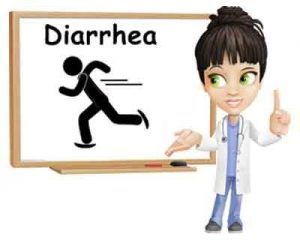- Home
- Editorial
- News
- Practice Guidelines
- Anesthesiology Guidelines
- Cancer Guidelines
- Cardiac Sciences Guidelines
- Critical Care Guidelines
- Dentistry Guidelines
- Dermatology Guidelines
- Diabetes and Endo Guidelines
- Diagnostics Guidelines
- ENT Guidelines
- Featured Practice Guidelines
- Gastroenterology Guidelines
- Geriatrics Guidelines
- Medicine Guidelines
- Nephrology Guidelines
- Neurosciences Guidelines
- Obs and Gynae Guidelines
- Ophthalmology Guidelines
- Orthopaedics Guidelines
- Paediatrics Guidelines
- Psychiatry Guidelines
- Pulmonology Guidelines
- Radiology Guidelines
- Surgery Guidelines
- Urology Guidelines
New AGA guideline on evaluation of diarrhoea

The American Gastroenterological Association (AGA) has released guideline on the laboratory evaluation of functional diarrhoea or irritable bowel syndrome with diarrhoea (IBS-D). The guideline, published in the AGA journal Gastroenterology, is intended to reduce practice variation and promote high-quality and high-value care for this patient population.
Diagnosing patients with chronic watery diarrhoea can be difficult for health care providers, since several causes with specific therapies, such as inflammatory bowel disease (IBD), microscopic colitis and chronic infection, need to be ruled out.
"When managing patients with chronic watery diarrhoea, it is important for health care providers to determine whether it is being caused by organic disease or a functional disorder, such as functional diarrhoea or irritable bowel syndrome with diarrhoea," said Walter Smalley, first author, Veterans Affairs Tennessee Valley Healthcare System and Vanderbilt University School of Medicine, Nashville, Tennessee.
"Both functional diarrhoea and IBS-D are clinical diagnoses with no defining laboratory tests. A workup to exclude all organic disease is impractical, expensive and potentially dangerous to patients if false-positive tests result in further invasive testing."
The AGA guideline applies to patients with properly working immune systems who have "watery" diarrhoea of at least four weeks duration. It excludes patients with bloody diarrhoea; diarrhoea with signs of poor fat absorption; features of alarm symptoms, such as weight loss, anaemia and hypoalbuminemia; a family history of IBD, colon cancer or celiac disease; and those with a travel history to regions where diarrhoea-related diseases are common.
The guideline recommends considering the use of the following laboratory tests for the evaluation of functional diarrhoea and IBS-D in adults:
1. In patients presenting with chronic diarrhoea, AGA suggests the use of either fecal calprotectin or fecal lactoferrin, which have been proposed as markers for inflammatory conditions, such as IBD.
2. In patients presenting with chronic diarrhoea, AGA suggests against the use of erythrocyte sedimentation rate or C-reactive protein to screen for IBD.
3. In patients presenting with chronic diarrhoea, AGA recommends testing for Giardia, a common cause of watery diarrhoea that can be readily treated.
4. In patients presenting with chronic diarrhoea with no travel history to or recent immigration from high-risk areas, AGA suggests against testing for ova and parasites (other than Giardia).
5. In patients presenting with chronic diarrhoea, AGA recommends testing for celiac disease with IgA tissue transglutaminase and a second test to detect celiac disease in the setting of IgA deficiency. Celiac disease is an important cause of chronic diarrhoea.
6. In patients presenting with chronic diarrhoea, AGA suggests testing for bile acid diarrhoea, which may be due to excess production or decreased absorption of bile acids, which then reach the colon and can cause watery diarrhoea.
7. In patients presenting with chronic diarrhoea, AGA makes no recommendation for the use of currently available serologic tests for diagnosis of IBS.
About Diarrhea and IBS-D
Diarrhea happens when a patient has loose, watery stools three or more times a day. When diarrhoea lasts four weeks or more, it is considered chronic, or long-term, diarrhoea. While diarrhoea is a common health problem, impacting 179 million people in the US a year, it can also be associated with a health condition called irritable bowel syndrome (IBS), a common disorder of the large intestine.
There are different types of IBS -- IBS-D: IBS with diarrhoea; IBS-C: IBS with constipation; IBS-M: IBS mixed. General symptoms for all types can include belly pain, cramping in the stomach area, gas, bloating and changes in the stool, such as diarrhoea, constipation or an urgent need to go. IBS impacts about 35 million Americans, physically, emotionally and socially.
To read the full recommendations follow the link: https://doi.org/10.1053/j.gastro.2019.07.004

Disclaimer: This site is primarily intended for healthcare professionals. Any content/information on this website does not replace the advice of medical and/or health professionals and should not be construed as medical/diagnostic advice/endorsement or prescription. Use of this site is subject to our terms of use, privacy policy, advertisement policy. © 2020 Minerva Medical Treatment Pvt Ltd